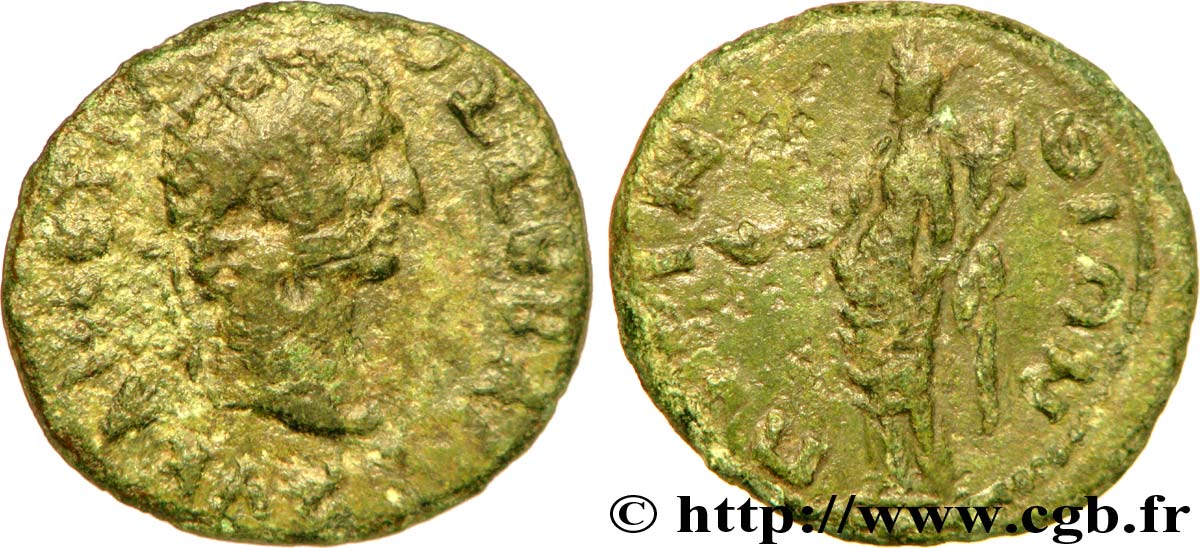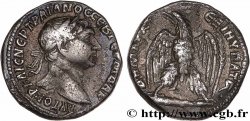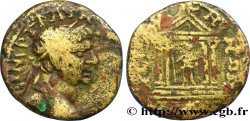bpv_239319 - TRAJANUS Diassaria
Not available.
Item sold on our e-shop (2016)
Price : 175.00 €
Item sold on our e-shop (2016)
Price : 175.00 €
Type : Diassaria
Date: c. 98-103
Mint name / Town : Périnthe, Thrace
Metal : copper
Diameter : 20 mm
Orientation dies : 6 h.
Weight : 5,58 g.
Rarity : UNIQUE
Coments on the condition:
Exemplaire sur un petit flan épais bien centré. Portrait taillé à la serpe. Joli revers. Patine vert olive clair granuleuse et légèrement piquée
Predigree :
Cet exemplaire provient du catalogue Antike Numismatik 51 (2005), n° 424 (190€)
Obverse
Obverse description : Tête radiée de Trajan à droite (O).
Obverse legend : AU KAI NE TRAIANOS SEB G, (Autokrator Kaisar Neruae Traianos Sebastos Germanikos).
Obverse translation : (L’empereur césar Nerva Trajan auguste germanique).
Reverse
Reverse description : Homonoia (Concordia) (la Concorde) drapée debout à gauche, tenant une phiale de la main droite et une corne d’abondance de la main gauche.
Reverse legend : PERINQ-IWN? (Perinqiwn).
Reverse translation : (de Périnthe).
Commentary
Rubans de type 3. Semble complètement inédit et non répertorié dans ce module. Manque à tous les ouvrages consultés.








 Report a mistake
Report a mistake Print the page
Print the page Share my selection
Share my selection Ask a question
Ask a question Consign / sell
Consign / sell
 Full data
Full data



